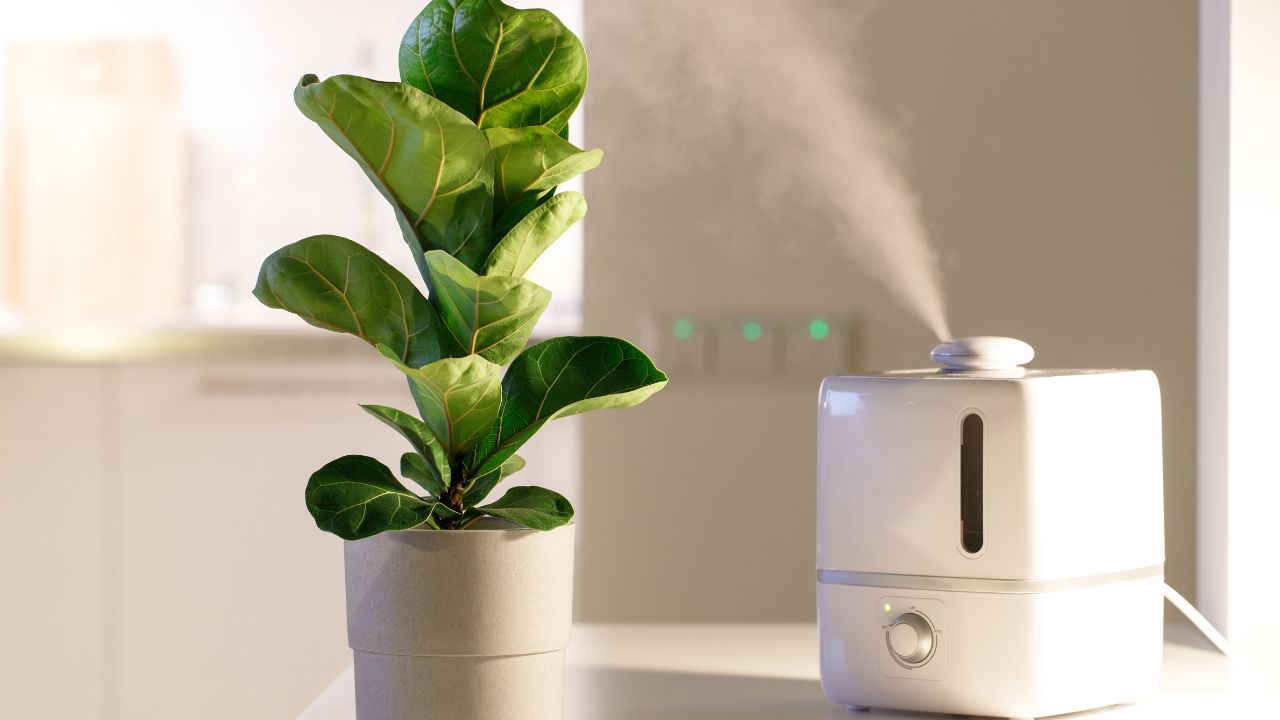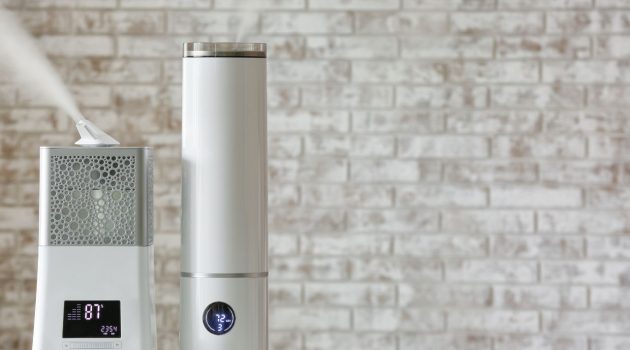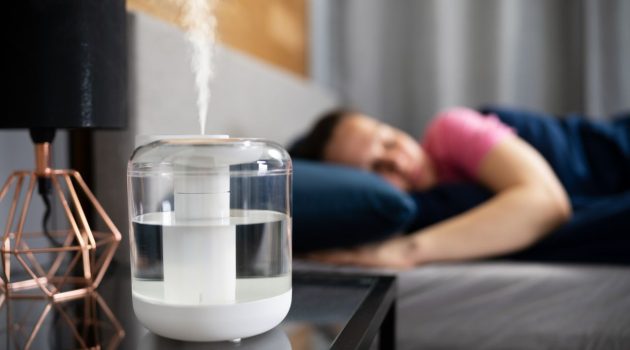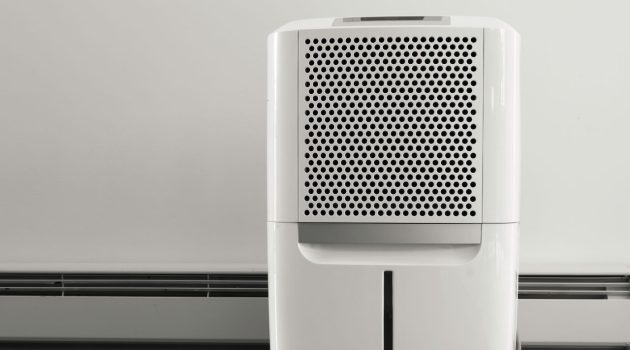When it comes to maintaining a comfortable humidity level in your home, humidifiers are a go-to solution.
They serve the important role of adding moisture to the air, which can be beneficial for your respiratory system, especially during the dry winter months or in arid climates.
Adequate humidity levels can help soothe dry skin, relieve nasal congestion, and even reduce the presence of allergens and other airborne irritants in your environment.
However, the idea of adding salt to a humidifier has been circulating, with proponents claiming it improves air quality and the effectiveness of the device.
In practice, adding salt to the water in a humidifier can indeed increase the production of mist in some warm mist humidifiers, but it’s important to be cautious.
Salt can potentially lead to damage to the internal components, reducing the humidifier’s lifespan and efficiency.
Moreover, unless specifically designed to handle saline solutions, many humidifiers, particularly ultrasonic and cool mist types, may not function properly or could be damaged by the addition of salt.
While the use of salt in a humidifier might seem appealing for potentially enhanced health benefits, such as mild antimicrobial effects, it’s essential to weigh the risks.
Salt can also change the water’s pH level and lead to the release of potentially harmful substances into the air, which might counteract the health benefits sought from using a humidifier.
So before you decide to add a pinch of salt to your humidifier, it’s worth considering if the model you have is compatible and whether the potential benefits outweigh the risks to both the device and your air quality.
1. The Myth of Adding Salt to Humidifiers
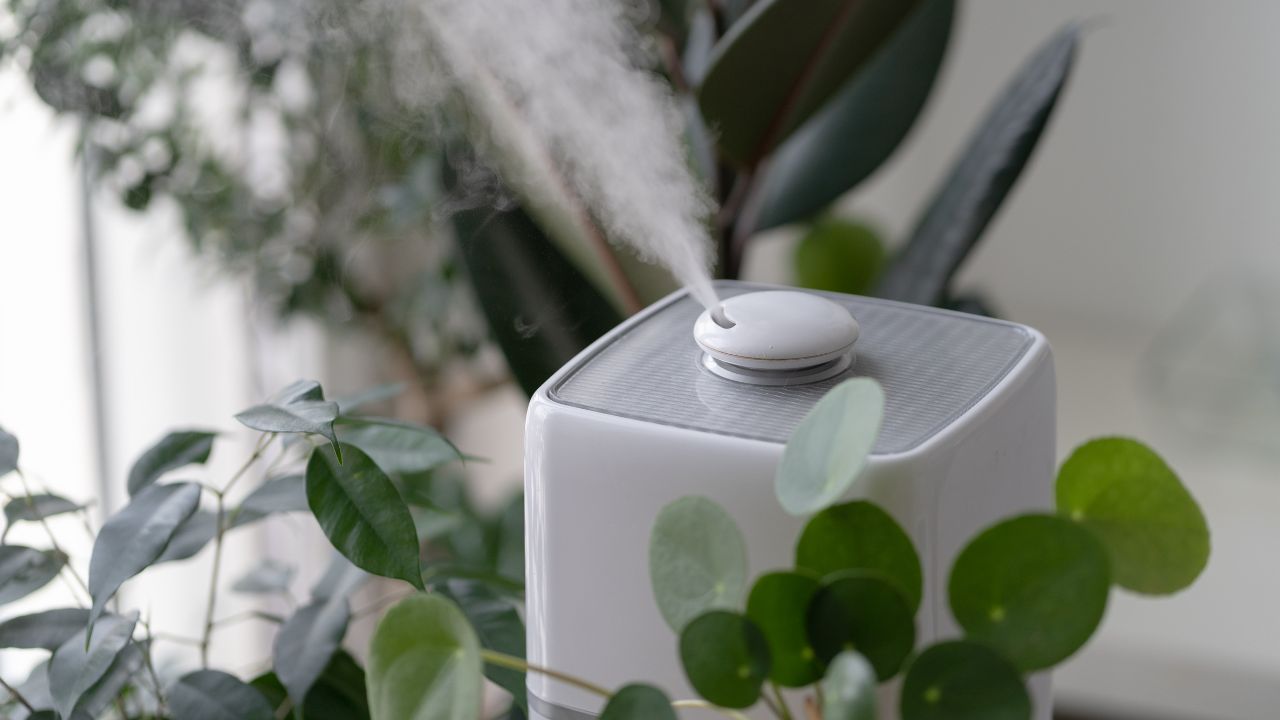
Origin of the idea to add salt to humidifiers
The idea of adding salt to humidifiers likely stems from traditional practices like salt therapy, also known as halotherapy, which uses salt’s natural hygroscopic properties to cleanse airways.
This practice has been extended to include adding various types of salt such as table salt, sea salt, or Himalayan pink salt to humidifiers.
What salt supposedly does when added to a humidifier
Many believe that salt:
- Enhances humidifier performance by improving water conductivity, especially in warm mist humidifiers
- Releases negative ions, purifying air and neutralizing impurities like dust and allergens
The reality of salt’s effects on different types of humidifiers
Most modern humidifiers are designed for use with plain water, not salt-infused water. Here’s how salt can affect different types:
- Warm Mist Humidifiers: Some warm mist humidifiers can tolerate a pinch of salt to aid in steam creation, but regular use can lead to corrosion and mineral buildup.
- Cool Mist and Ultrasonic Humidifiers: Salt can cause irreparable damage to these types of humidifiers, leading to malfunction and a potential void in the manufacturer’s warranty.
Remember, salt can introduce impurities and promote mineral buildup, which ultimately reduces the efficiency and lifespan of your humidifier.
Stick to the manufacturer’s recommendations for optimal performance and longevity of your appliance.
2. The Risks of Using Salt in Your Humidifier
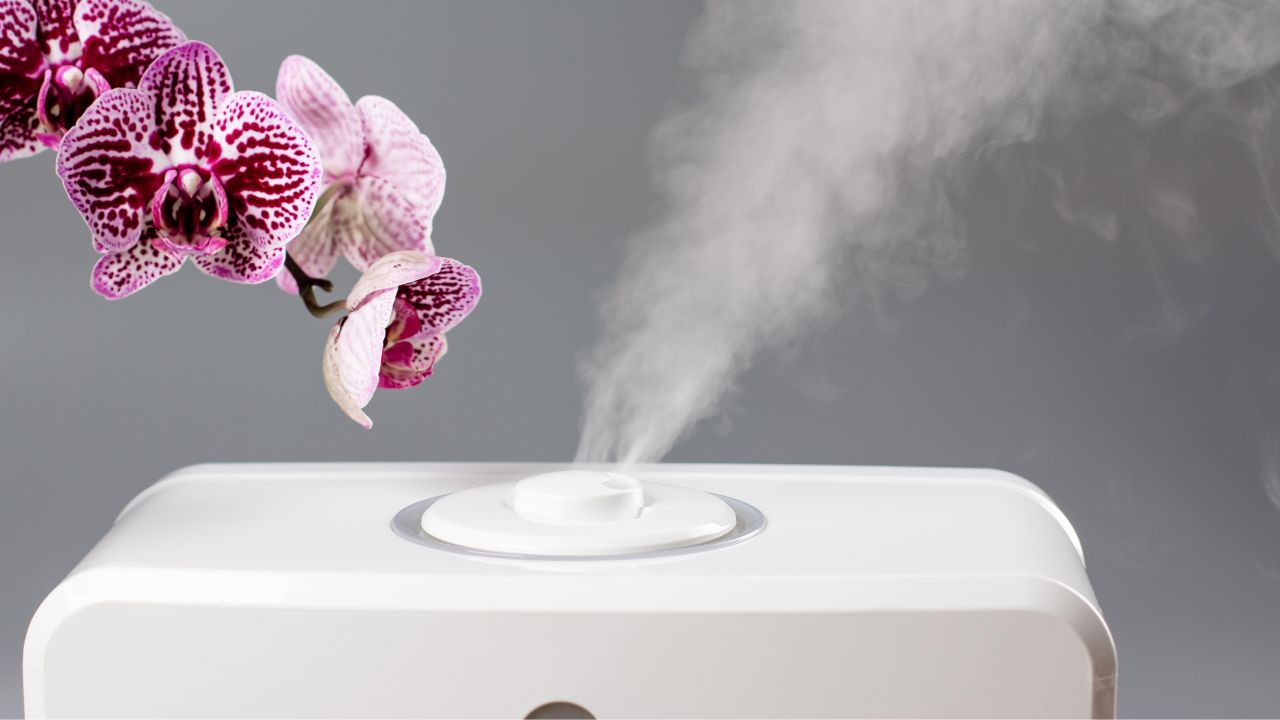
When considering adding salt to your humidifier, it’s crucial you’re aware of the possible implications for your health, the device’s functionality, and the manufacturer’s guidelines and warranty.
Potential Health Concerns
Adding salt to your humidifier can introduce health risks such as respiratory problems due to the inhalation of sodium chloride particles. These particles can potentially lead to inflammation in the respiratory tract.
Furthermore, the addition of salt may promote the growth of bacteria and mold in the water tank, which can disperse into the air and exacerbate conditions like asthma or allergies.
Although the antibacterial properties of salt are well-known, in a humidifier these properties may not be effective enough to prevent the proliferation of germs, leading to reduced air quality.
Impact on Humidifier Functionality
Salt can significantly affect your humidifier’s efficiency. Incorporating non-ionic types of salt into a humidifier can cause mineral deposits to accumulate and contribute to corrosion within the device.
These deposits can clog filters and wicks, inhibiting mist production and potentially causing a breakdown of the mechanism.
Moreover, salt may alter the humidity levels released, affecting the overall comfort and intended benefit of using the humidifier.
If you’re using tap water that already contains a range of minerals, even a pinch of salt can exacerbate mineral buildup.
Manufacturer Warnings and Warranty Issues
Most humidifier manufacturers explicitly advise against the addition of salt. Your humidifier’s manual will likely contain warnings that adding substances, including salt, voids the warranty.
This is a critical consideration, as failing to adhere to the guidelines could leave you responsible for the cost of repairs or replacement.
Frequently asked questions sections in manuals also address concerns about using distilled water over tap water to prevent mineral buildup—reinforcing the point that salts can be dangerous for your humidifier.
3. Alternatives to Salt for Enhancing Humidifier Performance

While you may have considered salt to enhance your humidifier’s performance, there are better substitutes that maintain the efficiency of your device without potential downsides.
These methods can help to minimize damaging mineral buildup, and ensure that you’re getting the cleanest mist possible.
Using Demineralization Cartridges or Filters
For ultrasonic and warm mist humidifiers, using demineralization cartridges or filters is an effective way to prevent the dissemination of minerals into the air.
These cartridges are designed to remove minerals from water, which means they help reduce the white dust often produced by ultrasonic humidifiers and maintain the unit’s functionality.
- Ultrasonic humidifiers: Replace cartridges as recommended to maintain low mineral dissipation.
- Warm mist humidifiers: Regularly check for filter replacements to ensure optimal performance.
Using Distilled or Purified Water
Substituting tap water with distilled or demineralized water can significantly cut down on the mineral deposits and extend the life of your humidifier.
- Cool-mist humidifier: Uses a wick filter to absorb water and a fan to evaporate it. Using distilled water helps avoid mineral buildup on the wick.
- Ultrasonic and Evaporative humidifiers: Emit a fine mist. Using purified water avoids the spread of mineral particles through the mist. Type of Humidifier Water Type to Use Benefit Ultrasonic humidifier Distilled/Purified Reduces white dust and keeps mist clean Evaporative humidifier Distilled/Demineralized Minimizes mineral buildup and extends wick life Warm mist humidifier Distilled/Demineralized Maintains cleaner steam production
By focusing on these methods, you keep your humidifier in better condition, which is an investment in your health, ensuring you breathe the highest quality air in your environment.
4. Proper Humidifier Care and Best Practices
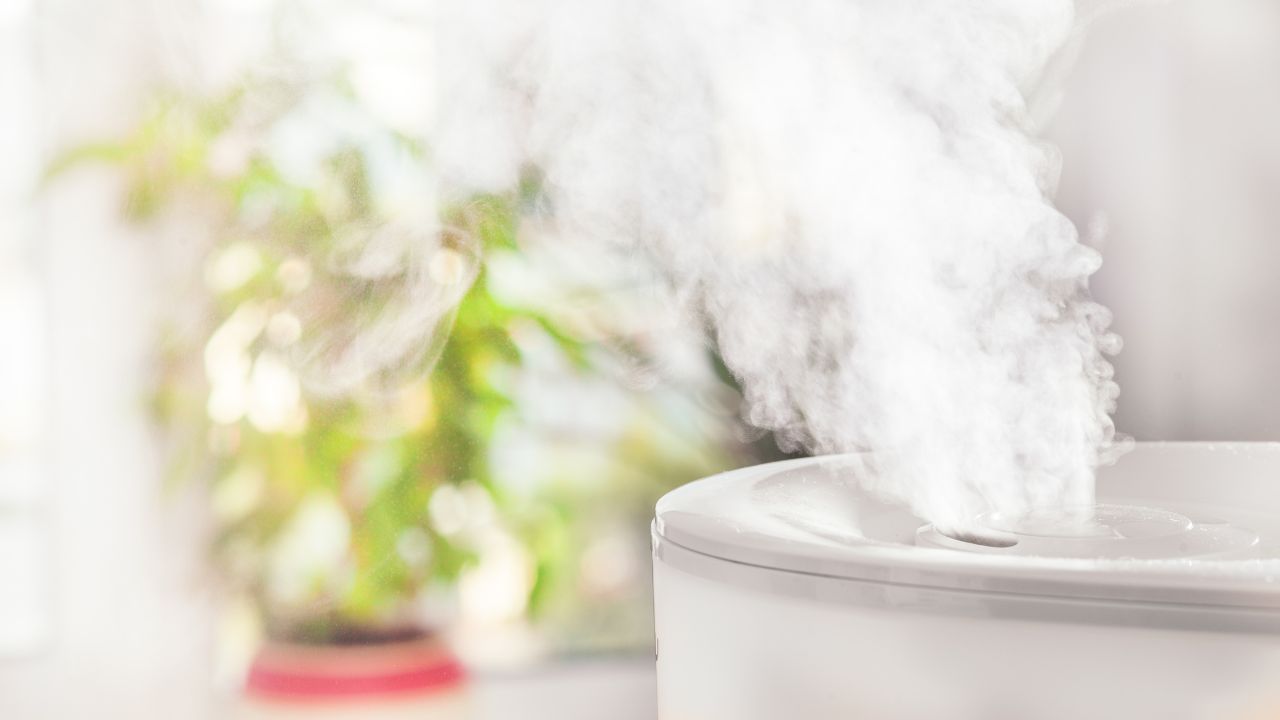
Maintaining your humidifier is crucial for both its longevity and the health benefits it can provide, such as easing allergies, congestion, and dry skin.
Here are some friendly pointers to help you keep your humidifier in tip-top shape:
Cleaning: Regular cleaning is essential. Your humidifier should be cleaned at least once a week. Detach all removable parts and wipe down the interior with a mix of equal parts water and vinegar, an excellent anti-microbial agent. This will help prevent mold and bacteria buildup.
- For evaporative humidifiers: Replace the wick filter as per manufacturer’s instructions.
- For cool mist humidifiers: Clean any mineral deposits to ensure fine water vapor quality.
Maintenance: Perform a deeper clean monthly. Disassemble the unit as much as possible and soak the parts in a vinegar solution before rinsing thoroughly. Only reassemble when all components are completely dry to avoid mold growth.
Therapeutic Benefit: If you’re seeking a therapeutic environment, consider adding recommended aromatherapy essential oils to a diffuser pad if your unit supports it, rather than adding anything directly to the water tank.
Water Use: Always use distilled or demineralized water to minimize mineral deposit buildup.
Health Considerations: Consult with your doctor about the benefits of steam to ease your specific symptoms. Nasal passages can often benefit from the humidity especially during cold and flu seasons.
Budget Considerations: Stick to manufacturer’s guidelines for usage to avoid unnecessary power drain and related costs. Proper care will extend the life of your humidifier, keeping it within your budget over time.
Remember, never add substances like salt directly to the water tank, as this could damage the humidifier and void warranties.
Keep up with regular care, and your humidifier will continue to provide relief from allergies, dry skin, and more.
